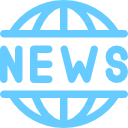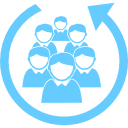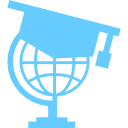Facts about Science in Russia from HSE Research Studies

Science is a large branch of economics in which, the resources are consolidated, transactions are carried out, and significant units of scales are created, and it requires a consistent, and systemic description. For the past 15 years, the Institute for Statistical Studies and Economics of Knowledge (ISSEK) of the Higher School of Economics has been measuring the state of Russian science using a system of statistical indicators and developing a long-term S&T foresight. On the occasion of the Russian Science Day (February, 8), HSE ISSEK issued two publications — the infographic report 'Russian Science in Figures' and data book 'Science and Technology Indicators'.
Russian Science in Figures
Editors: Leonid Gokhberg and Sergey Matveev
Authors: Valeriya Vlasova, Leonid Gokhberg, Ekaterina Dyachenko, Irina Kuznetsova, Tatiana Kuznetsova, Svetlana Martynova, Alyona Nefedova, Tatiana Ratay, Vitaly Roud, Galina Sagieva, Ekaterina Streltsova, Anton Suslov, and Konstantin Fursov
Full version in Russian (PDF, 966 Кб)
Bibliographic reference
Russian Science in Figures / V. Vlasova, L. Gokhberg, E. Dyachenko et al.; National Research University Higher School of Economics. — Moscow: HSE, 2018
The infographic report presents key indicators that characterize the state and development trends of science and technology in Russia. The paper examines country's positions in the Global Innovation Index, data on the structure and dynamics of the resource potential of the domestic science, its specialization, results and social effects of scientific and technological activity in comparison with foreign countries.The report is based on data from the Ministry of Education and Science of Russia, Rosstat, Rospatent, international organizations, as well as statistical and sociological surveys carried out by the Institute for Statistical Studies and Economics of Knowledge at the Higher School of Economics.
This report is the result of the project: "Conducting research on the state of the sphere of science and technology, directions and tools for its state regulation; development of information and analytical materials based on the results of the conducted studies" with the support of the Ministry of Education and Science of Russia.
Position of Russia in the Global Science
45th place in the Global Innovation Index-2017
In the GII-2013 the country held 62 position.
Russia scores high positions in the level of knowledge generation (scientific publications, patents) and their acquisitions (import of advanced technologies, acquisition of rights to the results of innovation activities, job field for scientific personnel in industrial sector is saturated), as well as in R&D sector.
The weaknesses of Russia's innovative development are related to the low effectiveness of the processes of knowledge dissemination (the export of high-tech products and services, the practical use of innovation results) and their impact on the economy and society (the scale of production of high-tech and creative industries, etc.)
14th place in the global rankings for the number of scientific papers published
Russian scientists published 46 230 articles in 2016 in scientific journals indexed in the Web of Science.
2,67% — Russia’s share in the total number of publications.
9,29 people — the average number of researchers (full-time employment) per article. This is the highest indicator among countries included in the top 15 based upon their publication activity in 2016.
1/3 of the published articles are written in international cooperation by Russian and foreign researchers. Majority of these articles are highly cited.
Top 10 major Russian partners: USA, Germany, France, Britain, China, Italy, Spain, Poland, Japan, Switzerland. Cooperation with Chinese researchers has marginally increased over the past five years, and decreased with partners from Germany and France.
29th place in the global rankings of countries participating in global research fronts
339 — the number of the global research fronts, which included articles of Russian scientists (total number of research fronts was 8684 in 2017).
The main areas of scientific specialisation of Russia since the time of the Soviet Union are in physics, chemistry, space and Earth sciences, mathematics and materials science: they account for more than half of the international publications of Russian scientists.
The area of technological specialization in Russia is almost constant. In recent years, it has included only two new areas — microstructural studies and nanotechnology, and other consumer goods. Many high-tech areas (chemistry of polymers, biotechnology, ICT) are still not included in the area of technological specialization of the country, despite their steady and positive shift in patent activity.
10th place in the global ratings of patent activity
+39% — the increase in the number of patent applications for inventions by Russian residents filed in the Russian Federation and abroad from 2001 to 2015.
1,17% — Russia’s share in the total number of world patent applications.
27th place in terms of technology exports / 25th place — by import volume
In 2016, technology export reached 1,3 billion dollars, import — 2,5 billion dollars.
In the Russian export of technologies non-registrable intellectual property (R&D, reports, technical documentation, etc.) and services of industrial character (92,6% in 2016) dominate. Their cost is significantly lower than the cost of the objects of exclusive rights.
38,5% — increase in the number of trademark license agreements and patent licensing agreements, industrial designs and utility models from 2005-levels by year 2016. At the same time, the number of patents that are the subject of transactions has grown 2,3 times.
Leadership among European countries with public attitudes toward science, technology, and innovation
Аt the same time, just less than one fifth of the country's population consider themselves sufficiently informed about the latest scientific achievements and possibilities of their practical application. This is one of the lowest rates in Europe.
Russians are interested in affordable technologies that are applicable in everyday life (solar panels, wearable technologies, electric cars). Morally ambiguous and potentially unsafe technologies are less in demand (for example - cultured meat).
32% of Russians in 2016 would be happy if their children decided to become scientists.
4th place (after China, USA and Japan) among the ranks of world’s leaders by the number of scientists and researchers
Аt the same time, Russia is the only country among developed countries, where this indicator has been declining for a long time. Since 1990, the number of researchers has decreased by 2,7 times, technicians — 3,9 times.
Russia ranks 12th place in growth in the number of R&D personnel. From 2000 to 2016, this indicator has declined negatively (-1,3%). China, the leader in this ratings, demonstrated 9,8% growth.
Despite noticeable influx of young people (scientists under 39 years old), there remain major disparities in Russian science: every third researcher has reached retirement age; and qualified middle-aged personnel outflow are continues (40–49 years old).
The most difficult situation is observed in academic institutions, where the average age of researchers has exceeded 50 years (for comparison: in the university sector of science — 47 years old, the average age of employed in the economy is 41 years old), the share of scientists over 60 years is 36% (in university science — 24%)
About 4 thousand organizations carry out research and development. As of 2016, they employ 722,3 thousand people. In contrast to most developed countries, predominantly state-owned research institutes that are separate from both the educational sphere and the production activity dominate. Meanwhile, over the past 20 years, the number of universities that carry out research and development has increased significantly, and their share in the structure of organizations has also increased from 9,7% to 24,3%.
The material and technical basis of science has been gradually recovering since the mid-2000s. In 2005–2016, the value of its fixed assets rose 1,6 times (in constant prices), the value of machinery and equipment increased 1,8 times. The share of the latter in value of fixed assets is increasing (39,5% in 2016 against 27% in 1999), and the service life of the machines is decreasing: the share of obsolete equipment (over 10 years) decreased from 25 to 17,2% in 2007–2015. Most of the machines and equipment are operated for less than 6 years.
10th place in research and development expenditure (% of GDP)
Russia has a general low scientific capacity of the economy, measured as the share of research and development expenditure (% of GDP).
In 2016, the gross domestic expenditure on R&D amounted to 1,1% of the GDP, or 943,8 billion rubles in current prices (148,4 billion rubles at constant prices in 2000).
Since 2000, spending on R&D increased 12,3 times in current prices and almost twice at constant prices. Since 2015, growth rate in R&D spending began to decline.
In Russia, research and development costs per researcher is 4,2 times lower than in the United States, 3,4 — in Germany, 3 — in Japan, 2,9 — in China, 1,8 — in the UK.
Leading position in the share of government funding of science
In Russia, scientific research is mostly funded by the federal budget. In 2016, the share of domestic spending on R&D reached $ 37,3 billion, or 68,2% (the highest among countries with the largest share of government funding of science).
Since 2000, allocations for civil sciences have increased more than 23,6 times in current prices and 3,7 times at constant prices. More than a quarter of funds is accounted for the support of basic research.
Traditionally, a significant part of research and development in Russia is focused on the development of the economy. In 2016, such projects accounted for 37,8% of domestic expenditure on science (in 1994 — 49,1%). 14,8% of internal costs are allocated on advancement of the science (in 1994, 12,5%).
In Russia, the share of R&D spendings on social goals (5,6%) is very small in comparison with other economies (for which data is available). 3,6% — the share of expenditure on research and development in the field of public health (in Bulgaria — 34%). 0,7% is the share of expenditures on research and development in the field of environment protection (in Chile, this figure is 8,4%).
Data Book “Science and Technology Indicators: 2018”
Editors: Leonid Gokhberg, Yaroslav Kuzminov, Konstantin Laykam, and Sergey Matveev
Authors: Natalia Gorodnikova, Leonid Gokhberg, Kirill Ditkovskiy, Maxim Kotsemir, Irina Kuznetsova, Evgeniya Lukinova, Svetlana Martynova, Tatyana Ratay, Larisa Rosovetskaya, Galina Sagieva, Ekaterina Streltsova, Anton Suslov, Irina Tarasenko, Svetlana Fridlyanova, and Konstantin Fursov
With the contributions by Irina Varzanovtseva.
Full version in Russian (PDF, 9,69 Мб)
Bibliographic reference
Science and Technology Indicators: 2018: Data Book / N. Gorodnikova, L. Gokhberg, K. Ditkovskiy et al.; National Research University Higher School of Economics. — Moscow: HSE, 2018.
The present data book is another one in the series of publications, dedicated to different aspects of scientific development in the Russian Federation. It begins with tables, where together with the main science and technology indicators there are data concerning the main innovative activities. The publication presents statistics on R&D organisations, R&D personnel and funding as well as its material and technical facilities. In some sections you may find information about intellectual property, technology commercialisation and usage, international comparisons data.
The data book includes the information of the Federal State Statistics Service, the Ministry of Education and Science of the Russian Federation, the Federal Servicefor Intellectual Property, the CIS Interstate Statistical Committee, the Organisation for Economic Co-operation and Development (OECD), the European Commission, Eurostat, UNESCO, the World Intellectual Property Organisation, as well as results of methodological and analytical studies conducted by HSE Institute for Statistical Studies and Economics of Knowledge.
In some cases the data amends the information published before.
What Else to Read about Science?
Other HSE Data Books
Series of Regular Bulletins “Science, Technology and Innovations” (in Russian)
To Increase Knowledge of Science Management
For current scientific managers
In 2017, with assistance from the Ministry of Education and Science of Russia, HSE ISSEK launched the online project "Knowledge Network" (in Russian) to exchange best practices in managing scientific researches and scientific and technical results. Within the framework of the project, the platform for exchange of experience was created, that covered the most effective practices in a number of key aspects of management in science, such as: organization management; personnel policy; material, technical base and infrastructure; management of financial resources; communication and cooperation; management of scientific results.
For the future scientists
In 2014, HSE ISSEK launched English-language master's program "Governance of Science, Technology and Innovation". The program is aimed at training new generation of specialists who have a consistent and contemporary knowledge for analysis and management of the field of science, technology and innovation — from their inception to implementation, and at different levels — corporate, regional, national and international. HSE is the only university in the world where politics and management in the field of science, technology and innovation are united within one master program.
To Discuss the Development of Science at the XIX April International Academic Conference
On April 10–13, 2018, in Moscow, National Research University Higher School of Economics (HSE) will be holding the XIX April International Academic Conference on Economic and Social Development. Within the framework of the Conference, HSE Institute for Statistical Studies and Economics of Knowledge will traditionally organise Section S “Science and Innovation” and associated sessions devoted to the discussion of current agenda of S&T policy, foresight and the questions of scientific and technological development in Russia and foreign countries.
Have you spotted a typo?
Highlight it, click Ctrl+Enter and send us a message. Thank you for your help!
To be used only for spelling or punctuation mistakes.






